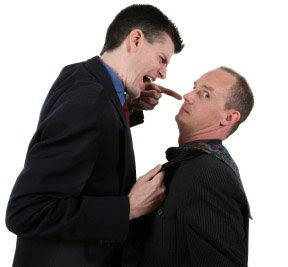
Why should God spare the United States? Do we deserve to be spared? Or, do we deserve to free fall into a black hole of socialism ... even fascism?
We are a Christian nation... aren't we?
To believe the United States is a Christian nation is like believing someone who calls himself a millionaire is a millionaire when he only has three dollars to his name.
We talk the talk; we don't walk the walk. We're good at God-talk; we're not so good at God-walk.
Let's not forget our inventory of Christian goods: church buildings, Christian schools, chimes, organs, pews, altars, pulpits, offering plates, clerical robes, baptistry's, fonts, paintings, gold plated crosses. Add to that our inventory of Christian personnel: pastors, teachers, evangelists, missionaries, counselors, bishops, overseers, elders, deacons, leaders, and ministers of music, discipleship, visitation, youth, children, & senior adults. Not to mention the religious rank and file who fill worship centers, cathedrals, storefront churches--a vast array of church-going people.
But when genuine spirituality is so rare, this inventory is not an advantage, it's a detriment, because it gives the impression that we are what we are not, a Christian nation.
We won't be spared as long as we choose to be self-deceived. We won't be spared until we admit who we really are. As a nation, in the strictest sense, in the New Testament sense, we are not Christian. For the most part, we are not even trying to be.
Suppose the billions of dollars spent on space exploration never produced one space mission? Rockets designed, shuttles built, astronauts trained, launch site prepared, but not one lift-off. Not one space mission. A lot of talk, speculation, energy, time, brainpower, money, but no results. How foolish would that be? And how foolish would it be for a nation that promoted that kind of space program to call itself a pioneer in space?
Isn't it the same with Christianity? We've produced a lot of Christian motion, worked up a lot of religious sweat, built a lot of buildings, spent a lot of money, talked a lot of God-talk, but with meager results. Compared to New Testament brand of Christianity, what do we have to show for it?
There are two ways open for us: 1. Become ruthlessly honest about how far we have walked off from God. Own our sin. Repent. Turn to Christ and become his serious followers. Or, 2. Continue to perform skillful maneuvers to cover the reality of our spiritual bankruptcy -- maneuvers that conjure up a forgery of righteousness (rightness) whereby we convince ourselves that we are indeed Christians.
Jesus Christ requires followers and he defines exactly what he means by this. They are to become disciples willing to forsake everything. But to be a serious follower of Jesus Christ is not something most of us really what to do. We'll settle for the counterfeit variety.
Should we be spared? Maybe God is fed up?
"Not everyone who says to me, 'Lord, Lord' will enter the kingdom of heaven, but only he who does the will of my Father who is in heaven" Matthew 7:21.



























